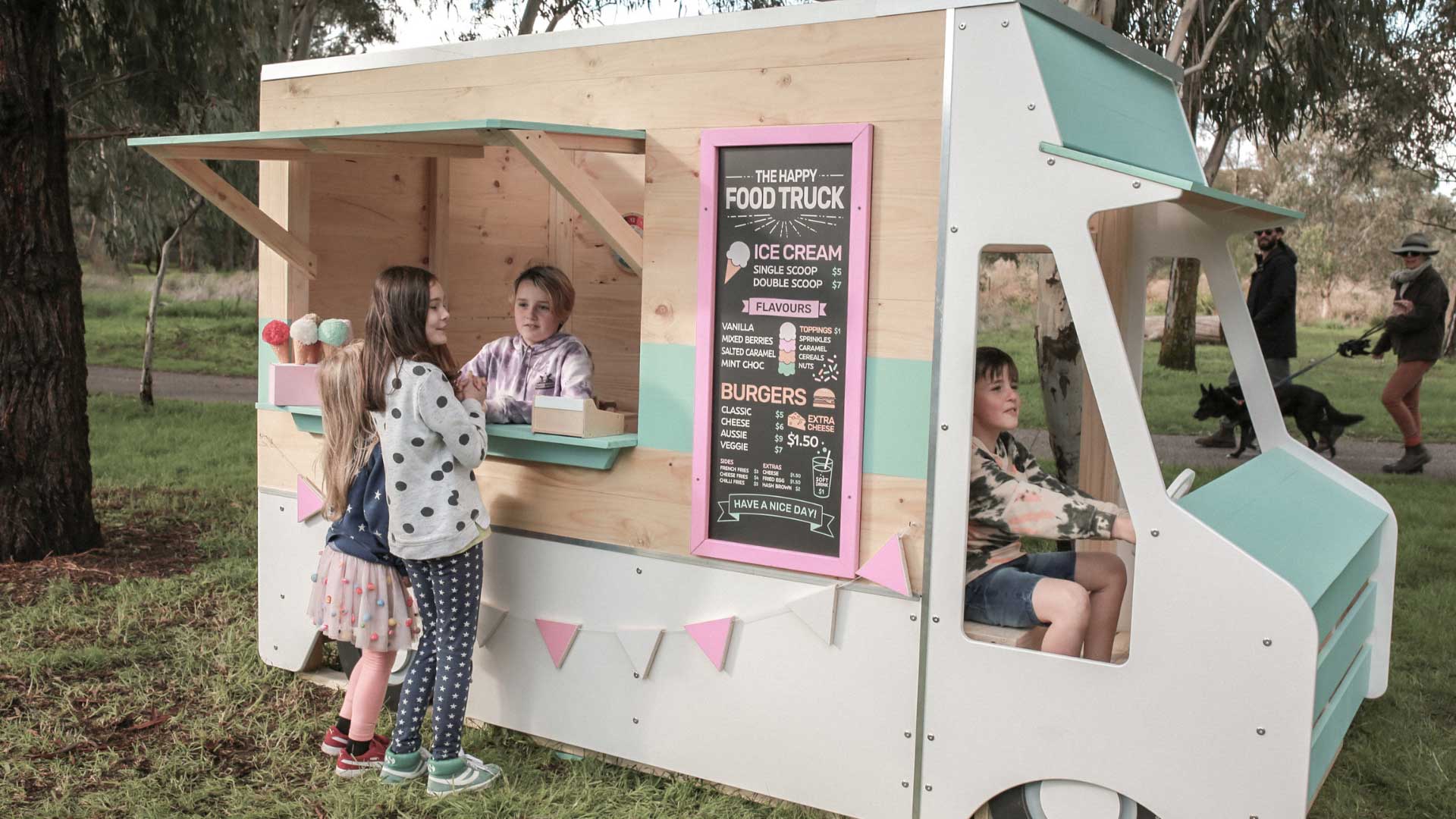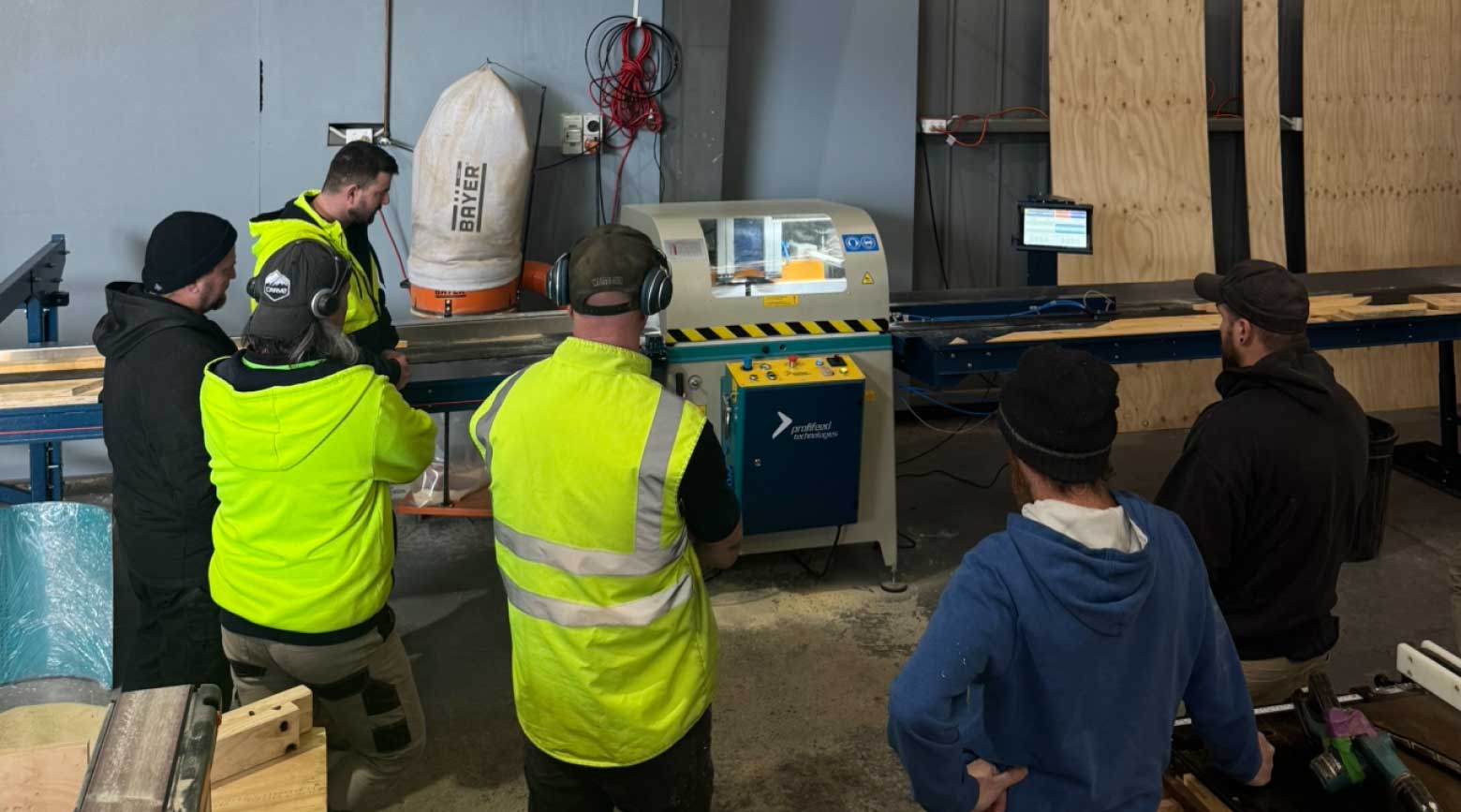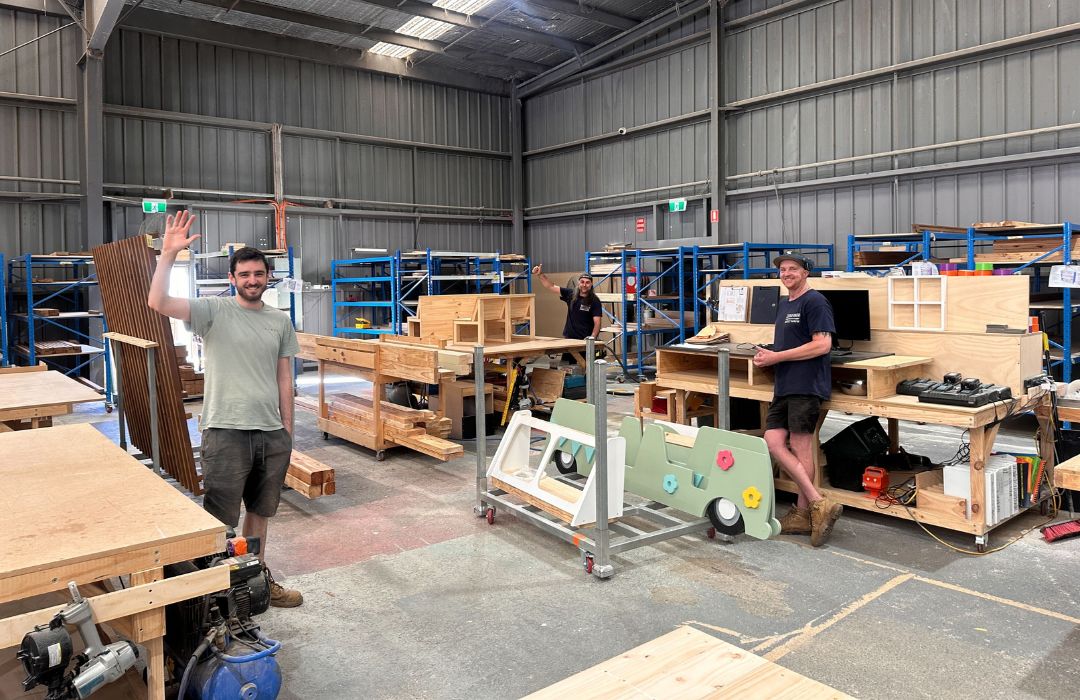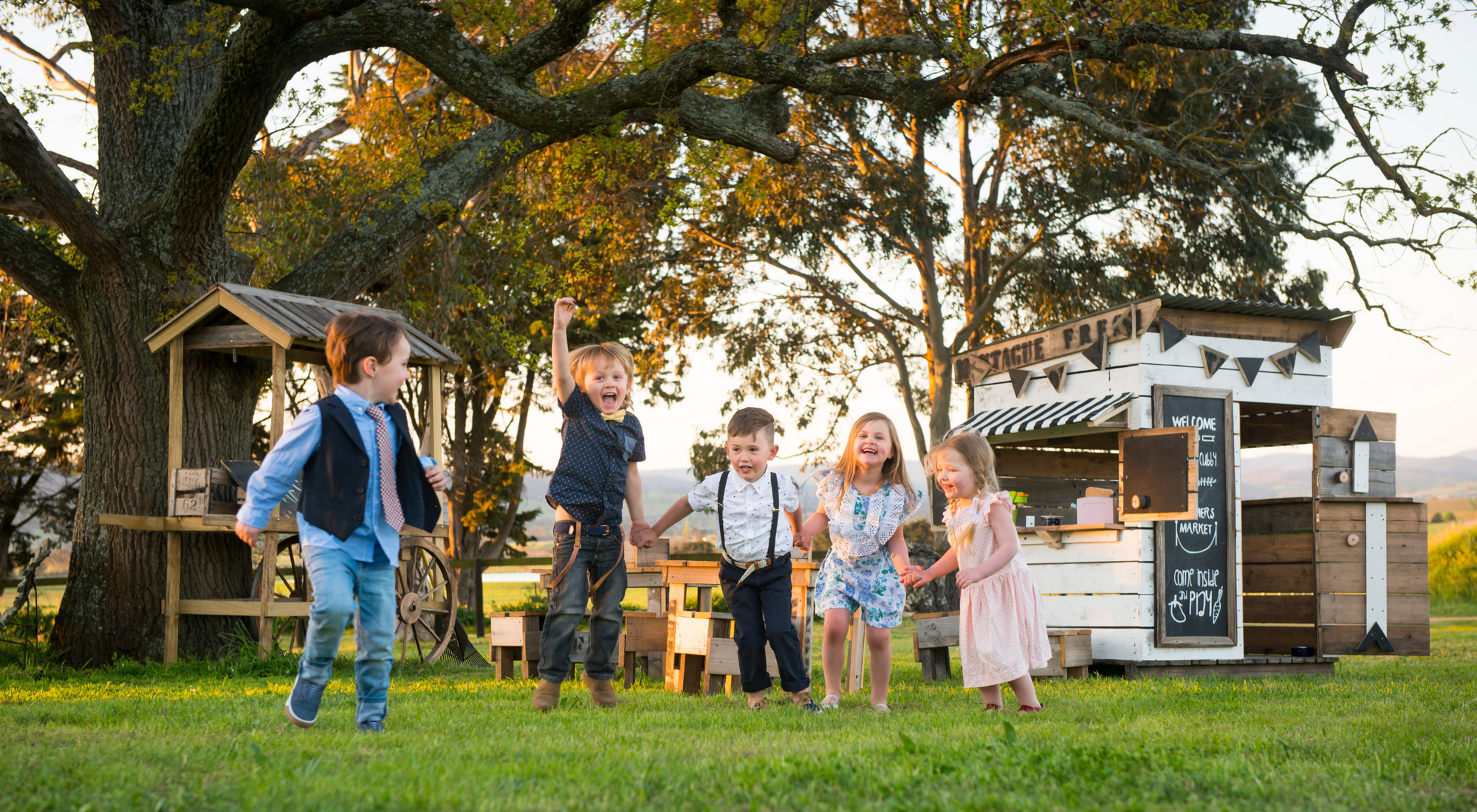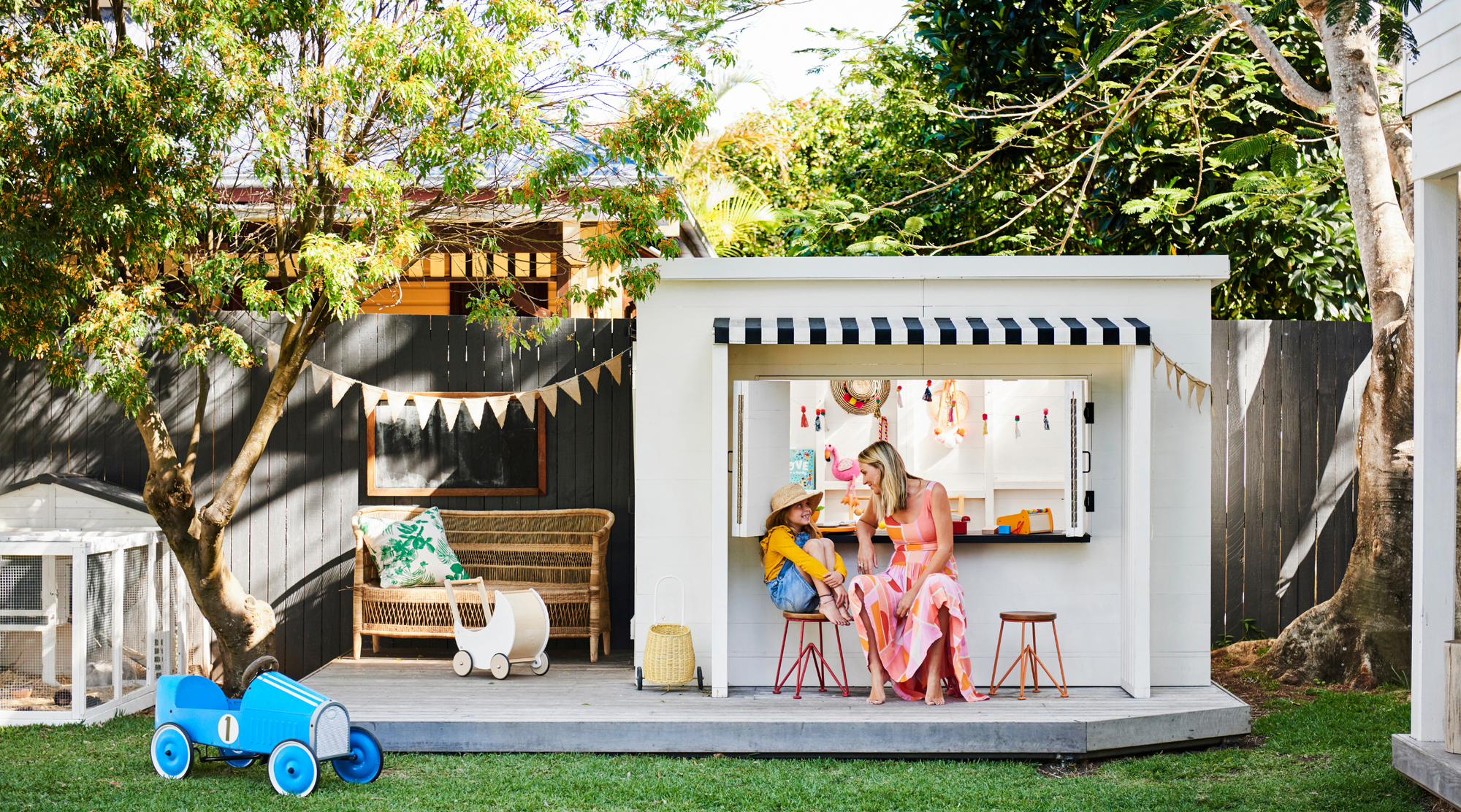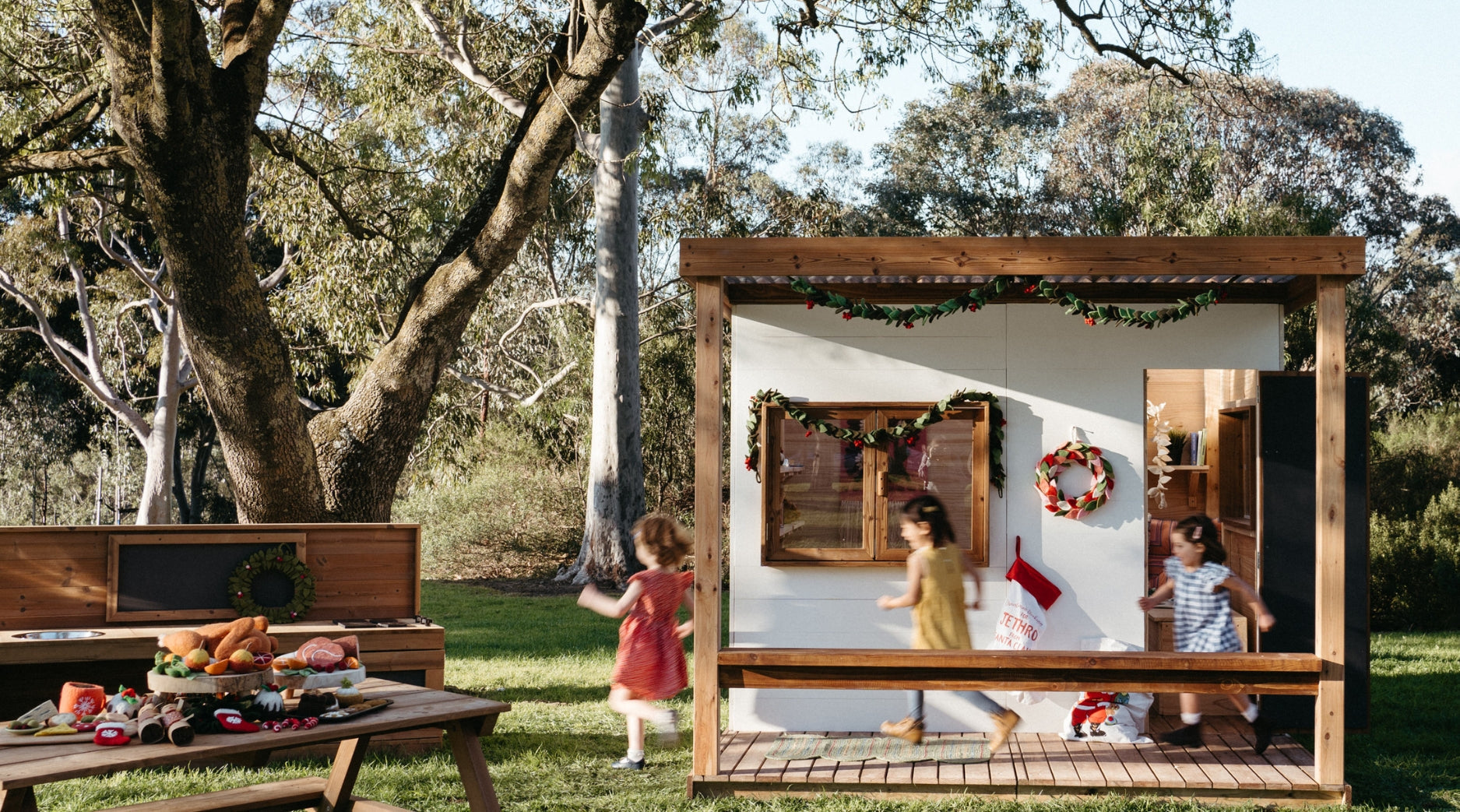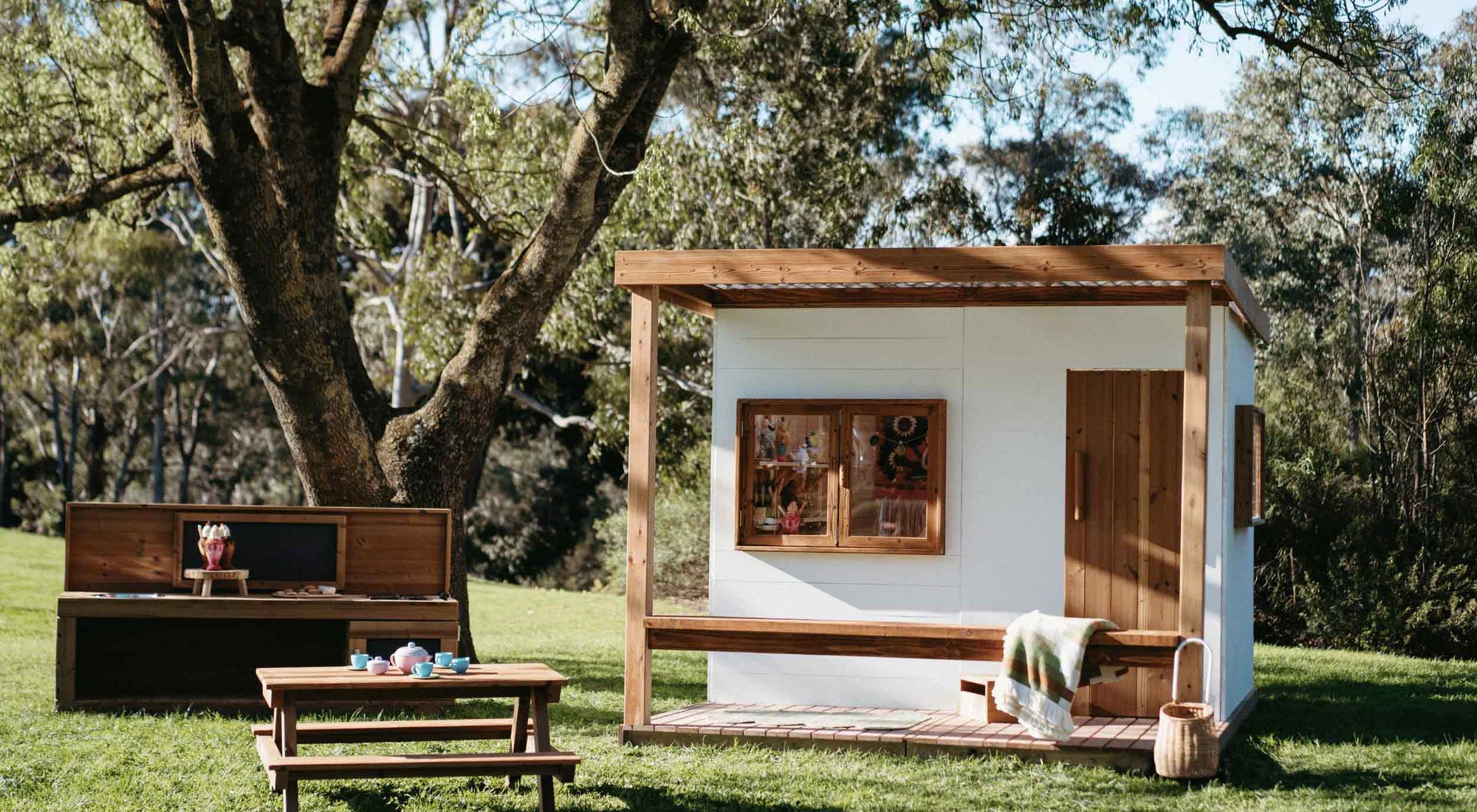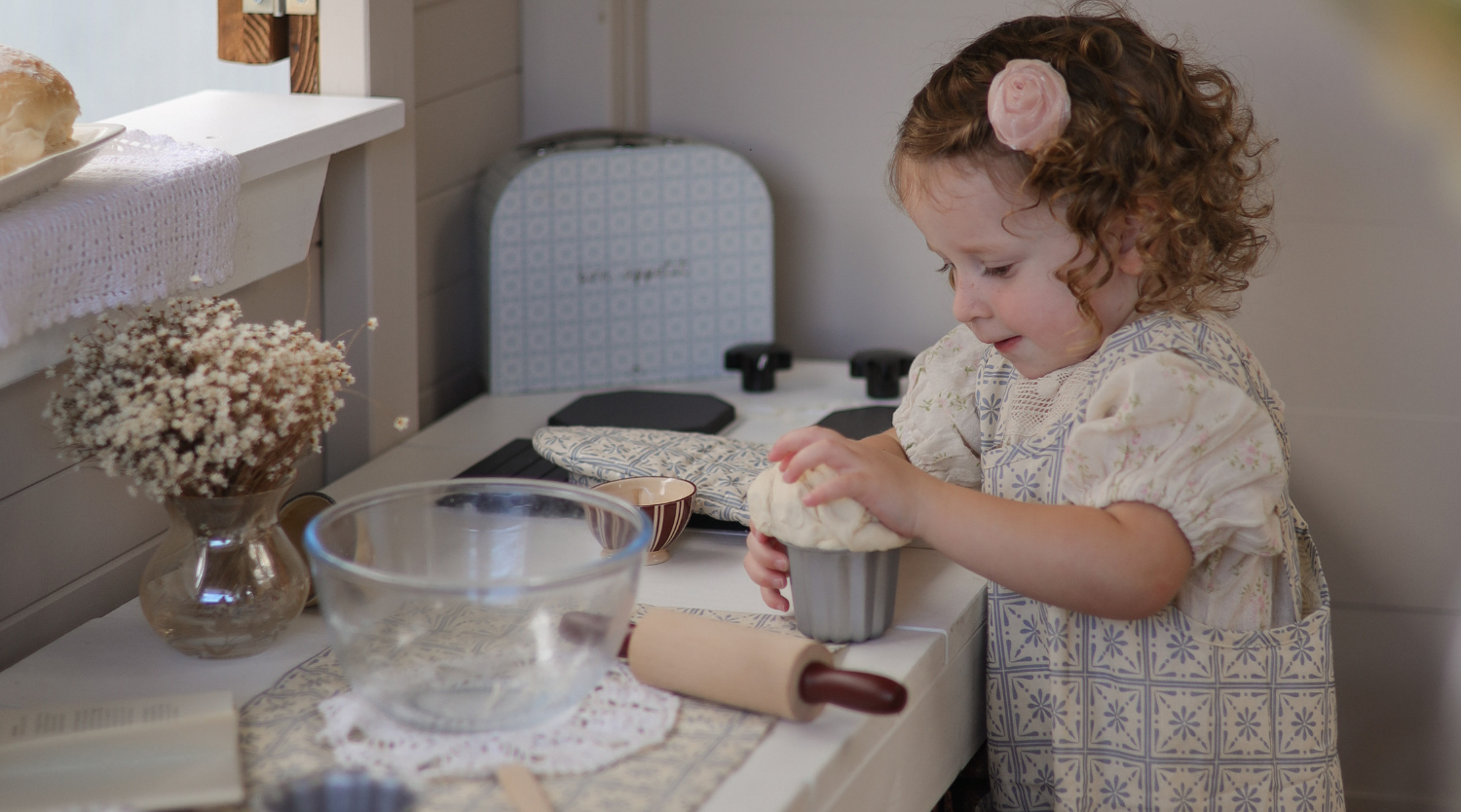Journal
Our First Chicken Coop Build: Designing for Chicken Expert Tayler Graham
Every Castle & Cubby project begins with a vision — a space made with purpose, imagination, and care. When lifestyle creator Tayler Graham asked us...
Bringing Play to Croydon Central Shopping Centre
A playful Food Truck Cubby now sits at the heart of Croydon Central, transforming the food court into a welcoming space for families. See how...
The Tools We Dreamt Of: A New Chapter in the Castle & Cubby Workshop
We’ve just welcomed two long-dreamt-of machines into the Castle & Cubby workshop, not to replace our hands, but to empower them. With precision cutting and...
Tears, Tools & Tiny Towns: What We’ve Been Up To at Castle & Cubby
Hello, friends! It has been a while. Four months, to be exact, since we last shared what has been happening behind the scenes at Castle...
The Importance of Outdoor Play: Insights from the Royal Children’s Hospital Study
Let’s face it, life today is busier than ever. Between juggling work, school drop-offs, and the never-ending pull of screens, it’s no wonder kids are...
Kids need outdoor play - here's how to make it happen with a cubby house
Growing up, the idea of kids not playing outside was pretty uncommon. Generally, if you grew up in Australia in the 80s and 90s, a...
Styling a Christmas Cubby House - Signature Modern Cubby
Looking to bring some magic Christmas to your kids’ favourite outdoor space? We’ve gathered our ideas on how to turn your wooden cubby house into...
Meet the new modern cubby house
One of the things that we adore about children is they love playing with mini versions of ‘grown up’ things. They are truly inspired by...
Down the rabbit hole with a whimsical Alice in Wonderland cubby house
One thing we love about a cubby house is all the creativite possibilities that it unlocks. And not just for the kids. We hear from...


